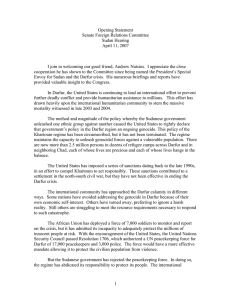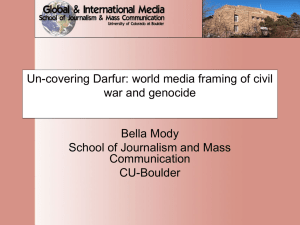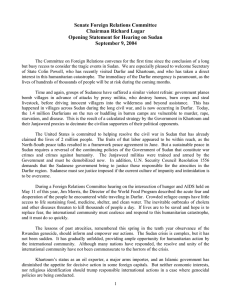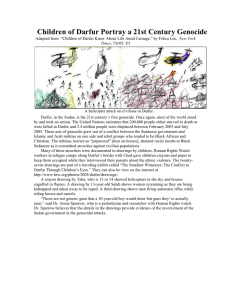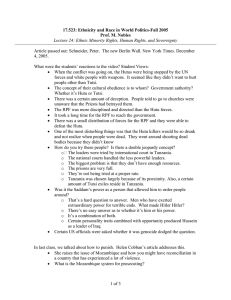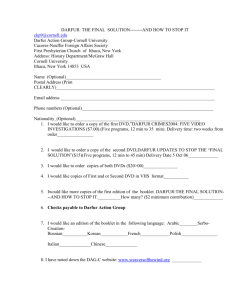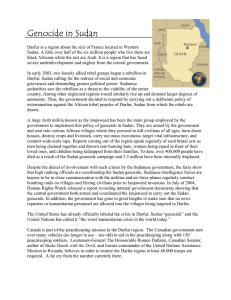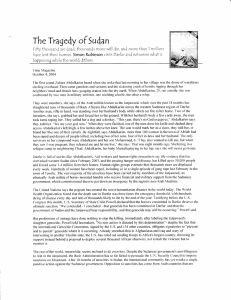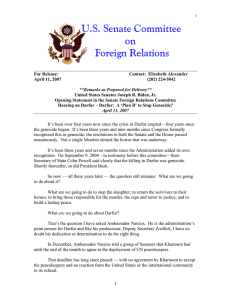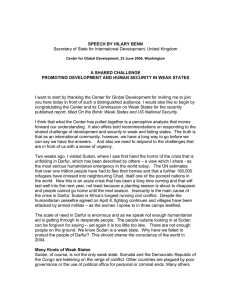Senator Joseph R. Biden, Jr. Opening Statement
advertisement
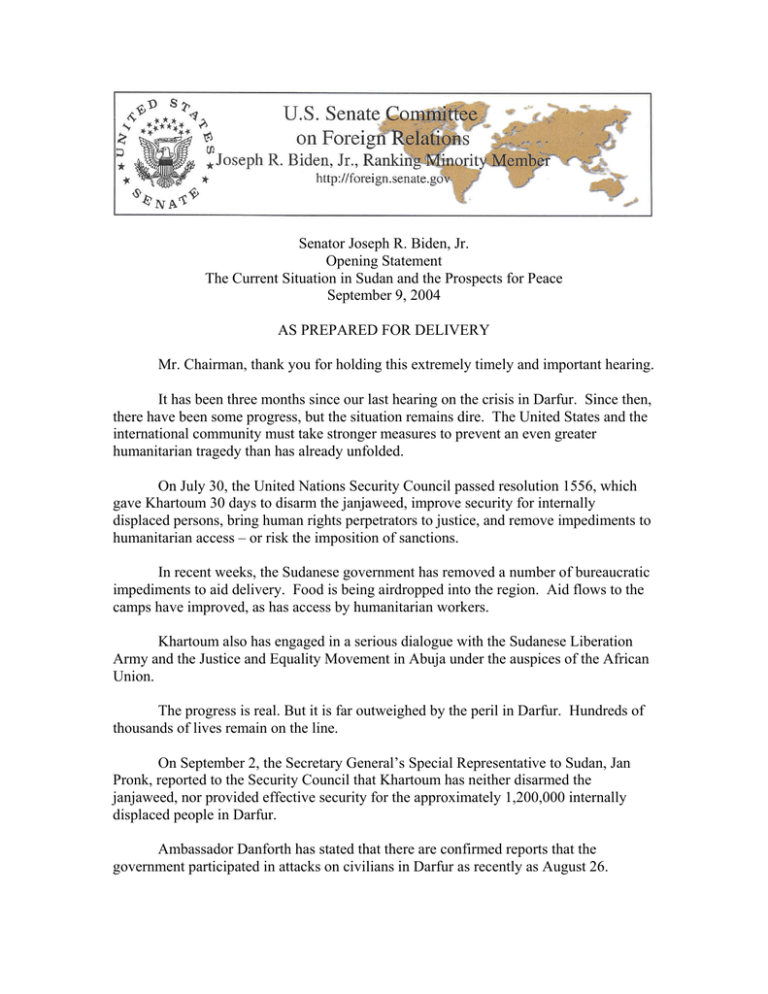
Senator Joseph R. Biden, Jr. Opening Statement The Current Situation in Sudan and the Prospects for Peace September 9, 2004 AS PREPARED FOR DELIVERY Mr. Chairman, thank you for holding this extremely timely and important hearing. It has been three months since our last hearing on the crisis in Darfur. Since then, there have been some progress, but the situation remains dire. The United States and the international community must take stronger measures to prevent an even greater humanitarian tragedy than has already unfolded. On July 30, the United Nations Security Council passed resolution 1556, which gave Khartoum 30 days to disarm the janjaweed, improve security for internally displaced persons, bring human rights perpetrators to justice, and remove impediments to humanitarian access – or risk the imposition of sanctions. In recent weeks, the Sudanese government has removed a number of bureaucratic impediments to aid delivery. Food is being airdropped into the region. Aid flows to the camps have improved, as has access by humanitarian workers. Khartoum also has engaged in a serious dialogue with the Sudanese Liberation Army and the Justice and Equality Movement in Abuja under the auspices of the African Union. The progress is real. But it is far outweighed by the peril in Darfur. Hundreds of thousands of lives remain on the line. On September 2, the Secretary General’s Special Representative to Sudan, Jan Pronk, reported to the Security Council that Khartoum has neither disarmed the janjaweed, nor provided effective security for the approximately 1,200,000 internally displaced people in Darfur. Ambassador Danforth has stated that there are confirmed reports that the government participated in attacks on civilians in Darfur as recently as August 26. And although assistance is reaching more people, humanitarian workers are discovering that more people need aid than they originally estimated. The bottom line is that the government of Sudan is not taking the actions demanded of it. And so the question before us is straightforward: what are we and our allies in the international community prepared to do to change the situation in Darfur? Will the Security Council act to impose sanctions under article 41 of the UN charter as threatened in 1556? Are we and our international partners prepared to push for a Chapter 7 peacekeeping force with a mandate that includes protection of civilians? Will other members of the Security Council support strong action – or will they undercut it? In short, what is our strategy to prevent what you have now agreed with Congress is genocide in Darfur? If we fail to act – when the evidence of Sudan’s crimes are clear for the world to see, and when we have the means to stop them – we renege on the promise of “never again” made after World War II, a promise repeated after the genocide in Rwanda. Were those words merely empty rhetoric, or will the world fulfill its promises when confronted, as we are right now, by another terrible challenge to human decency? I believe we should take strong measures, both domestically and internationally. In late July, Senator DeWine and I introduced legislation aimed at increasing the pressure on the government in Khartoum to bring a halt to the violence in Darfur. Senator Lugar subsequently introduced his own bill, which is similar in several respects, but takes a slightly different approach in others. I am pleased that we were able to introduce a joint bill today –a bill that we hope the entire Senate can support. I thank the Chairman. I look forward to hearing from you, Mr. Secretary. 2
